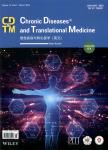Advances in immune response to pulmonary infection:Nonspecificity,specificity and memory
Advances in immune response to pulmonary infection: Nonspecificity, specificity and memory作者机构:College of Pulmonary&Critical Care Medicine8th Medical CenterChinese PLA General HospitalBeijingChina Medical School of Chinese PLABeijingChina
出 版 物:《Chronic Diseases and Translational Medicine》 (慢性疾病与转化医学(英文版))
年 卷 期:2023年第9卷第2期
页 面:71-81页
核心收录:
基 金:National Defense Science and Technology Innovation Fund Grant/Award Number:20-163-12-ZT-005-003-01。
主 题:adaptive immunity innate immunity lung infection trained immunity
摘 要:The lung immune response consists of various cells involved in both innate and adaptive immune processes.Innate immunity participates in immune resistance in a nonspecific manner,whereas adaptive immunity effectively eliminates pathogens through specific recognition.It was previously believed that adaptive immune memory plays a leading role during secondary infections;however,innate immunity is also involved in immune memory.Trained immunity refers to the long-term functional reprogramming of innate immune cells caused by the first infection,which alters the immune response during the second challenge.Tissue resilience limits the tissue damage caused by infection by controlling excessive inflammation and promoting tissue repair.In this review,we summarize the impact of host immunity on the pathophysiological processes of pulmonary infections and discuss the latest progress in this regard.In addition to the factors influencing pathogenic microorganisms,we emphasize the importance of the host response.



